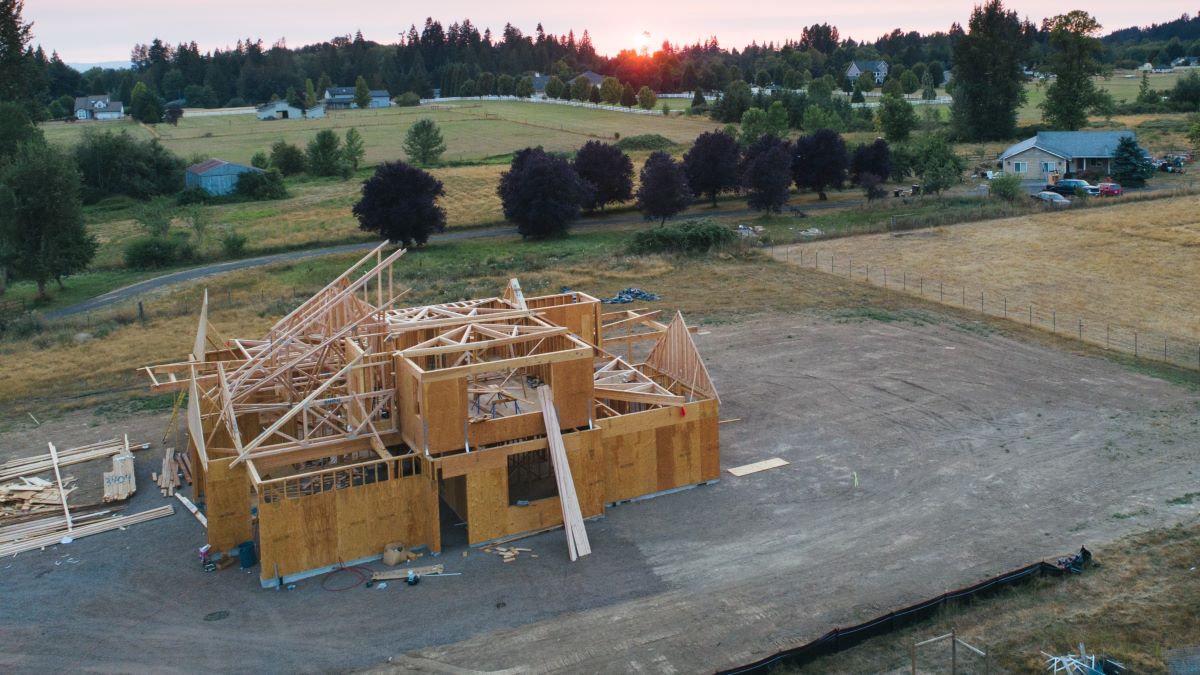
Are you looking to build your dream 3,000 sqft house in beautiful British Columbia? If phrases like “How much does it cost to build a house in Vancouver?” keep you up at night, you’re in for a treat! Dive in with me as we navigate the costs of building your abode in BC.
Quick note: It costs between $1,455,000 to $3,675,000 to build a 3,000 sqft house in Vancouver in 2023.
The cost of building a new house in BC can be influenced by factors like location, the type of contractor you hire, material costs, and your desired design specifics. And if you’re specifically curious about Vancouver, you’re in the right spot!
For a glance, let’s talk numbers. Building a 2,100 square foot home in different municipalities has varying costs:
While the numbers give an idea, the actual building cost can swing based on the quality of your build, choice of materials, and even the plot’s location. But remember, there’s more to the story! Broader factors can also impact the final cost. Think of supply chain issues we’ve been facing, wage hikes, and rising inflation.
So, while these figures give you a ballpark estimate, always consider the various elements that can influence the final tally. Building in Vancouver or anywhere else in BC requires a careful blend of planning and budgeting!
With its stunning vistas, BC commands some of Canada’s steepest land prices. Come January 2023, an average Fraser Valley lot will set you back anywhere from $700,000 to $1.2 million. Are you considering building your dream house in Vancouver West on a 33′ x 122′ lot? Prepare to part with a hefty 2.6 to 2.8 million!
While BC offers prime value, there’s room for all budgets. Here’s a breakdown:
As with anything limited, land costs are perennially rising. But what goes into determining these prices?
In summary, while waterfront or city-centric lands are pricier, not all rural land is readily buildable. However, it’s a budgetary win if the plot comes with utilities!
Hiring a professional contractor can be pricey, but it’s essential for a hassle-free building journey. While rates vary, remember the age-old saying: “You get what you pay for!” Always vet and compare contractors to ensure you get the best value. Contractors typically bill between 10-20% of the overall construction cost as their fee.
Building a house’s cost per square foot varies based on size and materials. Typically, you look at an average range depending on your desired finishes and design. But remember, this can be influenced by the “cost to demolish a house” if you’re building on a previously developed plot.
Here’s a look at the average home building costs in Canada (Per Square Foot)
| Home Type | Production Single-Family Home (Stock Home Plans) | Custom-Built Single-Family |
|---|---|---|
| Vancouver | $185 – $315 | $485 – $1225 |
| Calgary | $150 – $240 | $450 – $995 |
| Edmonton | $150 – $240 | $450 – $995 |
| Winnipeg | $145 – $230 | $450 – $975 |
| Toronto/GTA | $205 – $280 | $515 – $1130 |
| Ottawa/Gatineau | $140 – $225 | $500 – $1055 |
| Montreal | $140 – $205 | $430 – $860 |
| Halifax | $105 – $165 | $275 – $555 |
Source: Altus Group 2023 Canadian Cost Guide
Altus Group states that in Vancouver, a single-family home from a production builder ranges from $185-$315/sq ft, while in Montreal, it’s $140-$205/sq ft. These builders offer limited design options but are more affordable than custom builders. A custom home in Vancouver costs around $485-$1,225/sq ft versus $430-$860/sq ft in Montreal. As of 2023, Halifax is the most affordable Canadian city to build a home, while Vancouver is the priciest.
Pro Tips:
At a quick peek, serviced land might seem pricier than buying raw land and building from scratch. But let’s dive deeper.
Imagine setting up a new home. Unless you aim for a full-blown wilderness retreat, you’ll need electricity, water, gas, sewerage, and phone lines. And these come with costs.
But here’s a twist. Established builders often have the upper hand thanks to bulk land purchases and subsequent development. They can spread out utility setup costs over several properties, making it more cost-effective per lot.
The Verdict? For individual homeowners, serviced land is a clear winner. The combination of cost savings and sheer convenience is hard to beat.
Permit costs vary based on the municipality, but on average, set aside a budget of about $4,000 to $6,000. Permit fees are a global norm in construction. They fill the local government’s coffers and ensure that all construction activities are up to standard, prioritizing public safety.
The permit fee spectrum in BC is broad, from as little as $100 to several thousand dollars. And remember, these permits aren’t up for debate. Skirting them could lead to unwanted run-ins with the law.
Can you keep track of all required permits? It’s easier said than done. The legal landscape doesn’t take kindly to missed permits, even if it’s an honest oversight. The risk? Getting slapped with non-compliance, which the law views as intentional, regardless of your intentions.
The safe bet? Partner with an experienced contractor. They’ll ensure every required permit is secured timely, sidestepping potential legal tangles and project delays.
Wait, what? That’s right! The government wants to help you out. Here’s the scoop on four fabulous incentives:
The BC first-time home buyers’ program offers tax relief on property transfer tax for eligible buyers. To fully qualify, buyers must be Canadian citizens or permanent residents, have a BC residency history, and have never owned a primary residence globally or previously received this exemption. The property should be the primary residence, valued at $500,000 or less, and be up to 1.24 acres. Partial exemptions are available for properties under $525,000, larger than 1.24 acres, or with additional buildings. False declarations incur double tax penalties. After availing of the exemption, homeowners must maintain specific residency durations and conditions to retain the benefit.
Eligible first-time home buyers can claim up to $10,000 in 2022 for purchasing a qualifying home in Canada. Qualifying homes’ definition encompasses single-family homes, condos, and even certain co-op housing shares. Notably, persons with disabilities, or those buying for them, can claim without the first-time buyer condition, aiming to facilitate accessible housing. The amount (line 31270) can be split with a spouse when filing returns, but combined claims should be, at most, $10,000. For purchases in 2021 or earlier, the claim limit is $5,000.
The CleanBC Better Homes New Construction Program encourages building energy-efficient, electric homes by providing up to $15,000 rebates. Supported by the Province, it aligns with the BC Energy Step Code and offers two pathways:
Add-on rebates include working with a Qualified Energy Advisor for modelling, ranging from $1,000 to $2,000.
Eligibility encompasses homes built according to Part 9 of the BC Building Code in the BC Hydro or New Westminster Electrical Utility territory with permits issued post-April 1, 2022. Licensed builders, authorized owner-builders, and Indigenous community-authorizations can apply. All must pre-register, but the program currently has a waitlist.
Introduced in 2008, the BC Energy Step Code emphasizes energy efficiency, offering two compliance methods: “prescriptive” and “performance.” Most BC builders opt for the prescriptive method, focusing on individual building components, sometimes resulting in suboptimal building performance. Alternatively, the BC Energy Step Code champions the performance approach. This mandates a specific energy performance outcome, granting designers and builders flexibility in achieving it through any construction method or material supported by software modelling and on-site testing. This method aligns with several green-building certifications. The code categorizes performance targets into steps, from basic to ambitious, allowing local governments to set or incentivize standards.
Building a custom home in British Columbia is a significant financial and emotional decision. Proper planning is essential to avoid spiralling costs in the dynamic BC real estate market. Teaming up with an experienced home builder can be a game-changer. They offer insights into local markets, can help achieve cost savings and guide sustainable construction practices. This expertise ensures a seamless building process and a lasting investment. In short, while constructing your dream home in BC is thrilling, pairing up with a trusted builder ensures it’s also a wise investment.
Related Reads

Hey Quebec parents! On the lookout for the top-tier high schools for your soon-to-be grad? Filtering through the choices can feel like a marathon, but we have the shortcut ready. Dive deep into the Fraser Institute Ranking Report Cards on Quebec’s High Schools in 2023 for the full scoop. The Fraser Institute Ranking is a […]

Hey Montreal parents! On the lookout for the top-tier high schools for your soon-to-be grad? Filtering through the choices can feel like a marathon, but we have the shortcut ready. Dive deep into the Fraser Institute Ranking Report Cards on Quebec’s High Schools in 2023 for the full scoop. The Fraser Institute Ranking is a […]

Hey Vancouver parents! On the lookout for the top-tier high schools for your soon-to-be grad? Filtering through the choices can feel like a marathon, but we have the shortcut ready. Dive deep into the Fraser Institute Ranking Report Cards on BC’s High Schools in 2020 for the full scoop. The Fraser Institute Ranking is a […]

Hey Vancouver parents! Are you searching for the crème de la crème of elementary schools for your budding genius? Navigating the choices can be a whirlwind, but we’ve streamlined it for you. Dive into the Fraser Institute Ranking Report Cards on BC’s Elementary Schools in 2023 for a comprehensive lowdown. A little teaser for you: […]